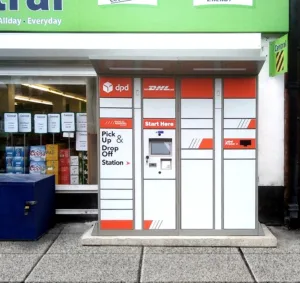By Scott Wilson, director of customer experience, eFax
It’s disappointing to see, despite the promises, the data indicates that the UK’s transition out of the European Union has not been as smooth as hoped. Exports of goods to the EU fell by 40% in January 2021 and imports dropped 29%. It’s got to the point where some businesses are halting sales to EU customers, either temporarily or, in more extreme cases, permanently.
It doesn’t matter whether you’re selling bikes or whiskey, moving your goods to the UK from the EU or vice versa, businesses are now struggling. What’s causing this? Research suggests an increase in paperwork is partly to blame. In fact, 47% of supply chain managers in the UK said the main reason for border delays is due delays customs are experiencing as they work through the new paperwork.
Those delays are crippling for online retailers. Consumers have flocked to ecommerce because of the ease of clicking on something and having it delivered within days, if not hours. People, increasingly, expect rapid turnarounds as standard, with the prevailing philosophy that if they have to wait, they may as well have gone to the shops. While this may not have been feasible during lockdowns, as the world opens up again online retailers need to be able to offer this differentiator. If customs paperwork means increased delays, the convenience of online shopping starts to dissipate.
It isn’t just the bureaucracy either, but the cost of it; from customs fees to expensive health certificates, many are facing significant obstacles that were not there last year.
The increase in paperwork is such that a majority of retailers (68%) surveyed by eFax believed the extra levels of paperwork required to do business across EU borders is now creating an additional security risk. Unsurprisingly, the same study found that 53% of UK retail IT decision-makers are accelerating the speed of digital transformation of paper-based processes as a direct result of the Brexit disruption.
What’s more, 70% of respondents would have accelerated digital transformation sooner if they had been aware of how much the extra paperwork would slow down cross border trade and transport.
It is going to take some months for the systems surrounding the passage of goods between the UK and EU to sort themselves out, a process which is likely to have several more twists and turns as various extensions expire for different sectors and commodities.
However, there are opportunities to improve those parts of the puzzle that online retailers have control over. So, for example, how they store and share documentation with employees and suppliers, irrespective of location.
Despite all the hype around digital transformation, there are many areas of life where physical documentation remains the norm. Logistics is one of those. Bills of lading, the piece of paper that proves cargo ownership, are often couriered from one party to another. New digital versions are available, but on the whole many businesses still have to get physical paperwork into the right hands at the right time.
There is appetite for change, however. The eFax study found that 89% of retail IT decision-makers believe workers travelling across borders would benefit from the ability to send, receive, and securely sign extra layers of paperwork on-the-move.
A few years ago, this wouldn’t have been possible – neither the IT infrastructure nor the devices were available, at scale, for entire workforces to be equipped with the right tools to digitally share documentation appropriately. Now, however, high quality coverage, cloud computing, smartphones and tablets mean that whether a stock-picker at a distribution centre, a truck driver or any other personnel can access paperwork, sign for it and share it securely, all from the palm of their hand.
The desire and the means are there – what online retailers need to do now is implement it. In doing so, they can ensure that they are well placed to optimise the transit of their cargo across borders.
There are always going to be disruptive external factors. Last year it was the pandemic, this year it has been the UK’s exit from the EU. No one wants to see backlogs of trucks snaking out of ports, food rotting in warehouses or customers left disappointed by deliveries unable to get over the border. For online retailers, that means ensuring that everything they control is as slick and frictionless as possible. With more paperwork than ever before, making sure it is in the right hands, at the right time, is critical to this process.









